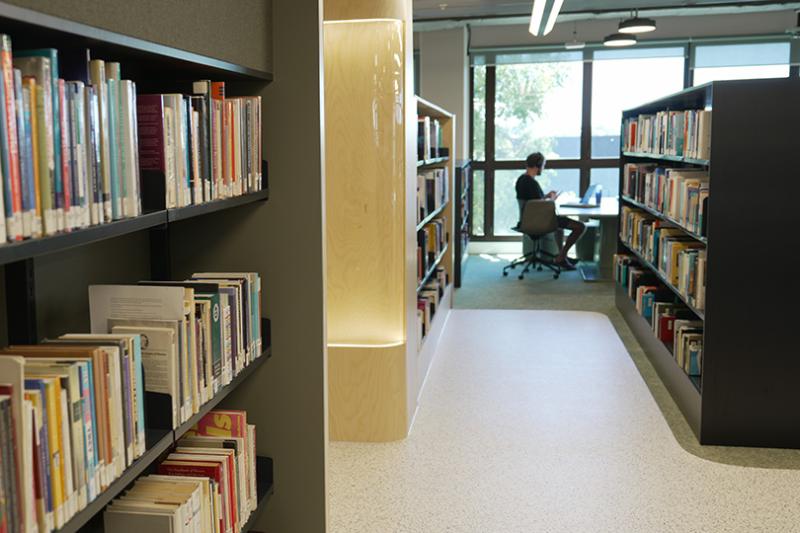New policy think-tank for VU

Successful businessman and renowned philanthropist Harold Mitchell AC has put his name, and a major donation over five years, to a new national public policy think-tank to be established at Victoria University.
The new Mitchell Institute for Health and Education Policy aims to make a significant and positive difference to the quality of public policy and ultimately, the lives of all Australians.
A joint project between the Harold Mitchell Foundation and Victoria University, the Mitchell Institute will fill a critical gap by linking sound research to solid policy making. Its focus will be on addressing health and education disadvantage.
"Through my philanthropic work I am particularly interested in creating socially and economically prosperous communities," Harold Mitchell said today.
"Health and education are big ticket items for the future of Australia. I am backing the Mitchell Institute to make a significant impact on public policy that will directly affect people's lives for the better."
"Good health and education is fundamental to the economic and social success of Australia and both need investment, policies and solutions that go beyond the three-year election cycle," he said.
Lindsay Tanner, former Federal Minister for Finance, Vice Chancellor's Fellow and Adjunct Professor at Victoria University is Chairman of the Mitchell Institute Advisory Board. The Deputy Chairman is Rob Knowles, former Victorian Health Minister and current member of the National Health and Hospitals Reform Commission.
Mr Tanner said he is excited by the talent already recruited to the Mitchell Institute and confident that the governance and financial structure would ensure its independence.
"The diversity of experience and breadth of knowledge we have on board demonstrates our genuine interest in promoting the very best knowledge, research, ideas and solutions that will appeal to governments on both sides of politics," Mr Tanner said.
Victoria University Vice-Chancellor, Professor Peter Dawkins is also a member of the Advisory Board. A former Director of the Melbourne Institute and former Secretary of the Victorian Department of Education and Early Childhood, Professor Dawkins believes evidence-based policy reform is vital to real and sustainable social change.
"This is a substantial philanthropic investment and demonstrates Harold Mitchell's faith in Victoria University and public policy reform; it defines his personal mission to improve health and education inequalities in Australia," Professor Dawkins said.
"The Mitchell Institute will be a major asset for Victoria University. It's also a great opportunity for leading Australian analysts and researchers to make an important impact on policy thinking and implementation on a national scale."
The Executive Director of the Mitchell Institute is Mark Burford, a respected senior government adviser in education and public policy. He said the focus of the Institute will be on ways to improve health and education outcomes for low and middle income families.
"Too many people from low socioeconomic communities are in poor health and are not succeeding in education," Mr Burford said.
"How can we share the opportunities that health and education provide? What can government do better to address chronic disease, mental illness, and youth disengagement? Can policy reform increase education participation and reduce school failure? These are the serious policy questions that the Mitchell Institute will concentrate on."
Mr Burford said the Mitchell Institute has a mandate to push policy debate towards action and looks forward to working with Victoria University to establish research communities in Melbourne' s western suburbs to track and improve the impact of health and education policies.
The Harold Mitchell Foundation
Harold Mitchell established the Harold Mitchell Foundation in 2000. This philanthropic initiative seeks to channel resources to make a big difference in the areas of health and education. It aims to increase knowledge, stimulate innovation, and spread good practice in ways that will enhance outcomes, especially for those parts of the population that face considerable challenges.
The Mitchell Institute Advisory Board
Lindsay Tanner is Chairman of the Advisory Board of the Mitchell Institute and Vice Chancellor's Fellow and Adjunct Professor at Victoria University. He is a former Minister for Finance.
Rob Knowles is deputy chairman of the Advisory Board. He is a former Victorian Health Minister and a current member of the National Health and Hospitals Reform Commission.
Professor Peter Dawkins is the Vice-Chancellor of Victoria University. He is a former senior public servant and former director of the Melbourne Institute.
Stephanie Copus-Campbell is Director of the Harold Mitchell Foundation and has a background in international aid.
Fran Thorn is a former Secretary of the Department of Health in Victoria and is a partner at Deloitte Australia.
Professor Warren Payne is the Pro Vice-Chancellor for Research and Research Training at Victoria University.
The Mitchell Institute executive team
Executive Director Mark Burford is a respected public policy advisor. He has extensive experience as a senior public servant for governments on both sides of politics, notably in the Victorian Department of Premier and Cabinet under Premiers Kennett and Bracks, and as a senior adviser to Labor Ministers for Education, John Dawkins and Julia Gillard. Mark Burford joins the Mitchell Institute from management consultancy, The Nous Group, where he worked for State and Commonwealth governments, including as an adviser to the Gonski Review of School Funding and on quality regulation in higher and vocational education and training.
Director of Health Policy, Rosemary Calder is a respected health and social policy advisor and has worked for State and Commonwealth governments. She has experience as a senior public servant for both the Coalition and Labor governments and was head of the Office for the Status of Women, under the Howard Government. Most recently Rosemary was Chief of Staff to the current Victorian Minister for Health, David Davis.



